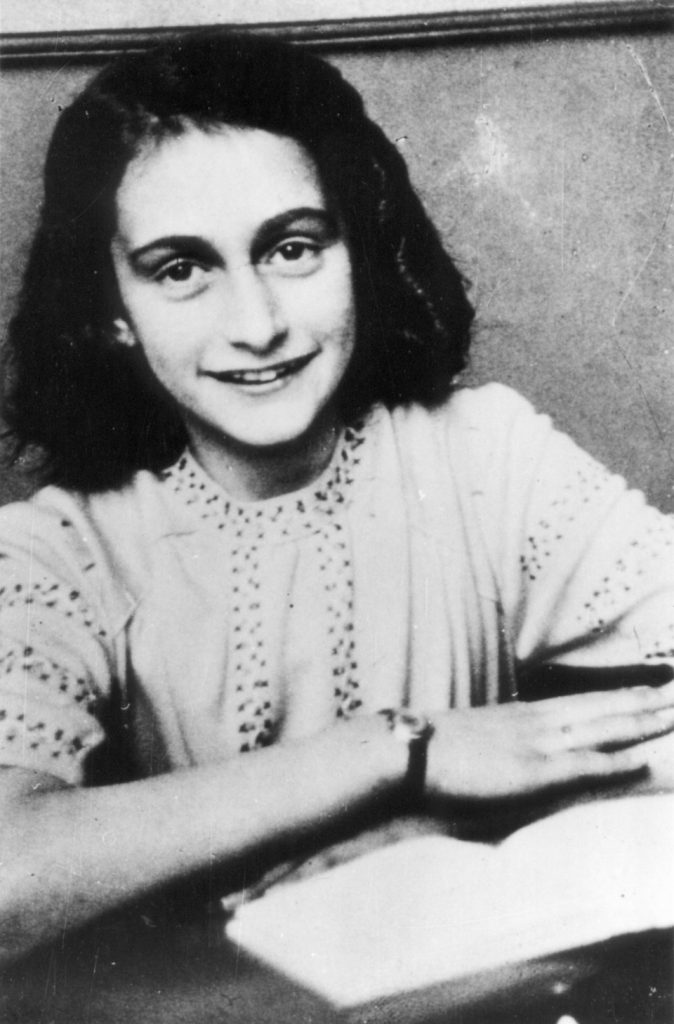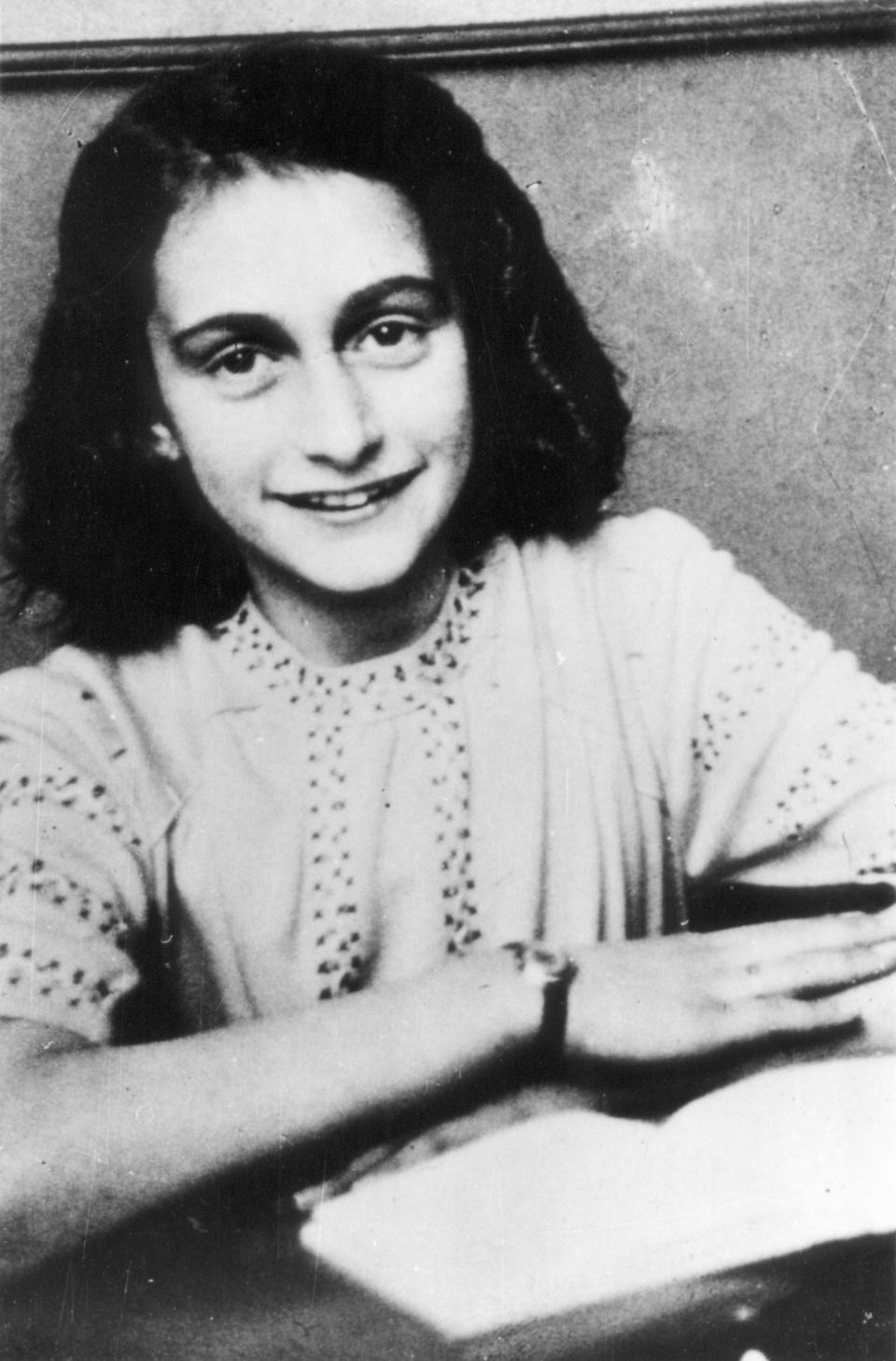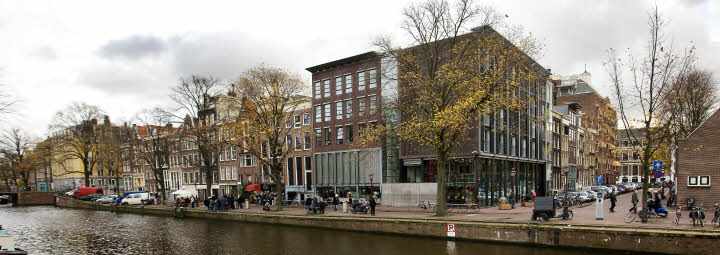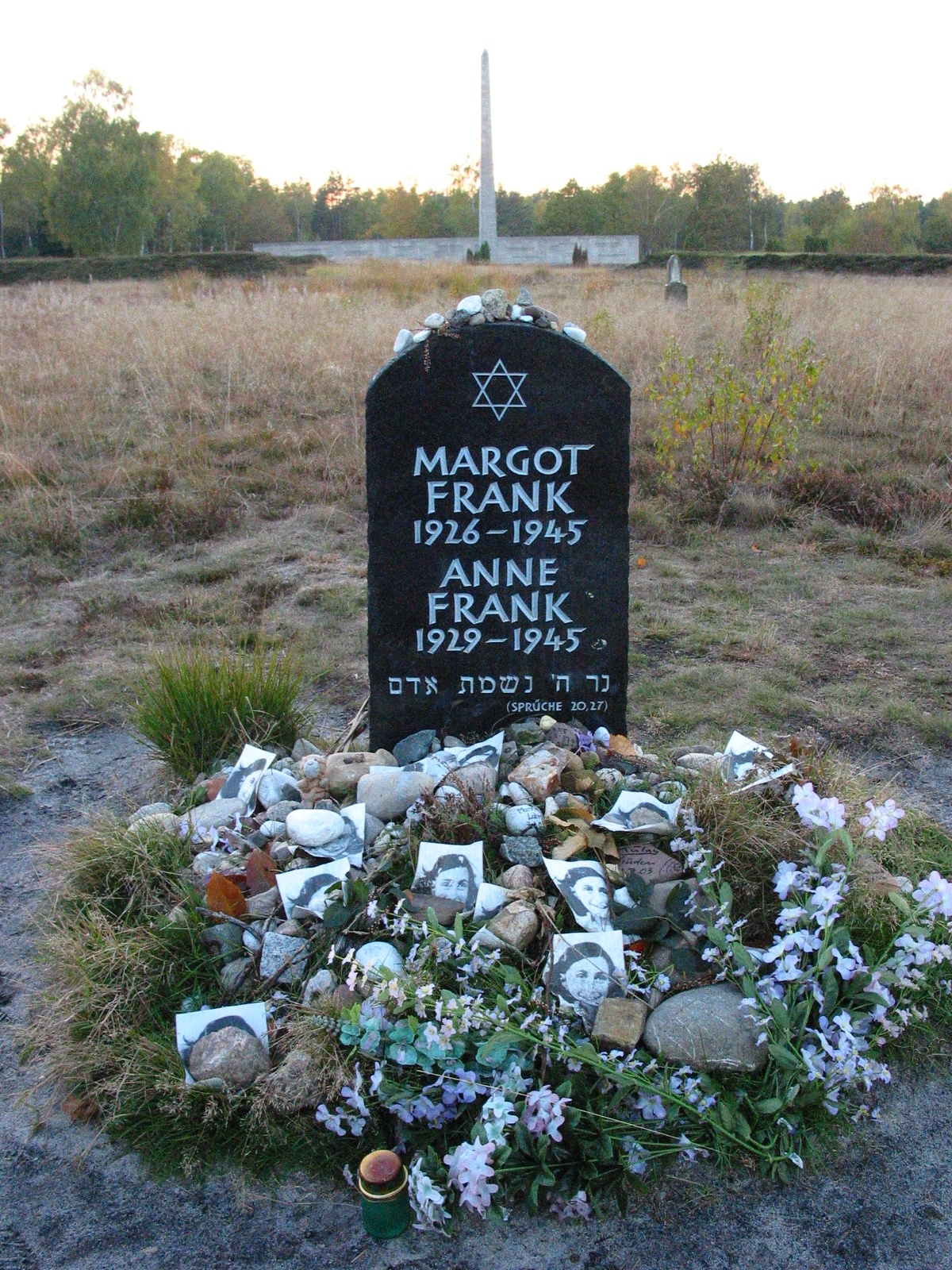Finest Hour 170
“Our Beloved Winston Churchill” – Churchill and Anne Frank

December 3, 2015
Finest Hour 170, Fall 2015
Page 15
By David Freeman
 The greatest book of the twentieth century is The Diary of a Young Girl by Anne Frank. Anne’s tragically short biography is well known. She was born on 12 June 1929 in Frankfurt, Germany, a city with a long and rich history of Jewish culture. After the Nazis came to power in 1933, her family emigrated to the Netherlands and settled in Amsterdam.
The greatest book of the twentieth century is The Diary of a Young Girl by Anne Frank. Anne’s tragically short biography is well known. She was born on 12 June 1929 in Frankfurt, Germany, a city with a long and rich history of Jewish culture. After the Nazis came to power in 1933, her family emigrated to the Netherlands and settled in Amsterdam.
Anne adored her adoptive country, but following the German invasion of the Netherlands in the spring of 1940 (on the day Churchill became prime minister), Anne’s father Otto began to make arrangements to hide his family from the inevitable Nazi roundup of Jews.
On 6 July 1942 the Franks and another family went into hiding together in a specially prepared “secret annex” at the back of a warehouse on the Prinsengracht Canal, now home to the Anne Frank Museum. Altogether there were eight people in seclusion: Anne, her sister Margot, their parents Otto and Edith, Hermann and Auguste Van Pels (known as the Van Daans in the book), their sixteen-year-old son Peter, and, starting in November 1942, Fritz Pfeffer (an elderly dentist known in the book as Mr. Dussel).
Anne was thirteen when she went into hiding. Unbeknownst to her family, she had already started a diary. She continued to keep it up as soon as the Franks were settled in the annex. Her first entry from that point was made on 8 July 1942. Every few days she wrote new entries documenting her perilous existence for the next two years. The final entry was made on 1 August 1944. Three days later the annex was raided by the Nazis, and all were arrested. Anne and Margot were sent to Bergen-Belsen in Germany, and in that disease-ridden camp they perished in the early months of 1945. Anne was fifteen.
Of the others, only Anne’s father survived. After the war he returned to Amsterdam, where his friends, who had been assisting the family while in hiding, presented him with the writings and drawings of Anne that had been found left behind. After some urging, Otto Frank resolved to publish the diary, and the first edition appeared in 1947.

2024 International Churchill Conference
No evidence has emerged that Winston Churchill ever read the English translation, although it was published in 1952 when he was once again prime minister. If he ever had read the book, he no doubt would have been moved to learn that one of his greatest admirers during the war was Anne Frank. She made several references in her diary to Churchill, whose activities and speeches she carefully followed via the radio.

The first entry mentioning Churchill is for 10 November 1942 and describes the Allied landings made in North Africa, Operation TORCH:
The biggest surprise came from Mr. Van Daan when, at one o’clock, he announced that the British had landed in Tunis, Algiers, Casablanca, and Oran. “This is the beginning of the end,” everyone one was saying, but Churchill, the British Prime Minister, who had probably heard the same thing in England, said: “This is not the end. It is not even the beginning of the end. But it is, perhaps, the end of the beginning.” Do you see the difference?1
Perceptive indeed for a thirteen-year-old, and the diary reveals a keen observer of events, wise beyond her years. On Saturday, 27 February 1943, she wrote: “Churchill has had pneumonia but is improving slowly. The freedom-loving Gandhi of India is holding his umpteenth fast.”2
Likely this pithy observation would have raised a chuckle from Churchill, who was indeed recuperating from a serious case of pneumonia, and had just written that he was “feeling definitely better. So is Gandhi. Once he saw that his antics would have no effect he took a marked turn for the better.”3 Gandhi was living in comfortable arrest in Poona after calling for all India to withdraw support for the war effort. To make his point he vowed a three-week fast. Meanwhile, the Franks were living in daily fear for their lives on a strictly rationed diet as the German army occupied their country, enslaved civilians, and murderously hunted down Jews.
Over one year later and twenty months into hiding, Anne wrote on Monday, 27 March 1944 that the adults in the annex were obsessively following news on the radio:
Just as if the German Wehrmacht news bulletins and the English BBC were not enough, they have now introduced Special Air-Raid Announcements.…The British are making non-stop business of their air attacks, with the same zest as the Germans make a business of lying. The radio therefore goes on early in the morning and is listened to at all hours of the day, until nine, ten, and often eleven o’clock in the evening.
Anne began to show her exasperation with this:
Arbeiter-Programm, Radio “Oranje,” Frank Phillips or Her Majesty Queen Wilhelmina, they each get their turn, and an ever attentive ear…. Ugh! It gets so boring, and it’s quite a job not to become a dull old stick oneself. Politics can’t do much more harm to the parents!
However, she went on to add: “I must mention one shining exception—a speech by our beloved Winston Churchill is quite perfect.”4
Ten weeks later came the biggest news of all: Tuesday, 6 June 1944. After recording that she had listened to various radio announcements about the D-Day landings in different languages, starting at eight in the morning, Anne wrote:
English news in English at one o’clock: 11,000 planes stand ready, and are flying to and fro

non-stop, landing troops and attacking behind the lines; 4,000 landing boats, plus small craft are landing troops and material between Cherbourg and Le Havre incessantly. English and American troops are already engaged in hard fighting. Speeches by [Dutch Prime Minister] Gerbrandy, by the Prime Minister of Belgium, King Haakon of Norway, De Gaulle of France, the King of England, and last, but not least, Churchill.5
The numbers of planes and aircraft that she recorded were the same figures given by Churchill that day in his speech to the House of Commons, although Anne confused “landing boats” for ships, as the landing boats were counted among what Churchill described as “several thousand smaller craft.”6 Three days later Anne wrote:
We heard over the BBC that Churchill wanted to land with the troops on D-Day; however, Eisenhower and the other generals managed to get him out of the idea. Just think of it, what pluck he has for such an old man—he must be seventy at least.7
Churchill was in fact sixty-nine, and famously did have to be dissuaded by King George VI himself from personally participating in the D-Day landings. Anne’s admiration helps to explain the passion she continued to express in what became her final entry about Churchill made on Tuesday, 13 June 1944:
Yesterday Churchill, Smuts, Eisenhower, and Arnold visited French villages, which have been conquered and liberated. The torpedo boat that Churchill was in shelled the coast. He appears, like so many men, not to know what fear is— makes me envious!8
Churchill’s first visit to the Normandy beachhead did take place on 12 June, but it was a destroyer, HMS Kelvin, not a torpedo boat, that Churchill’s party boarded for return to Portsmouth. Still Anne no doubt would have been thrilled to learn that it was Churchill’s personal suggestion that the Kelvin “have a plug” at the Germans before going home.9
Anne was quite right to believe that Churchill was without fear. While he was still on shore meeting with General Montgomery, air alarms occasionally sounded. At least one was a real threat. Viewing a photograph that captured the moment, Montgomery later recalled: “A German came over. There was an air battle. Everyone was rather alarmed. Winston was rather pleased. There was shelling. Everything was happening.”10 Pluck indeed.
There was, of course, no happy ending for Anne Frank. Following capture that August, she died bald, emaciated, and shivering, not in a gas chamber but of malnutrition and disease, probably some time the following February. Her body was interred with thousands of others in an unmarked grave.
The diary of Anne Frank has inspired millions with its poignancy, insights, and sense of foreboding. Near the end she wrote, “A quiet conscience makes one strong!”11 During her ordeal Anne was sustained primarily by her faith and the love of her family, but her testimonial reveals that she also drew strength from the leadership of Winston Churchill.
David Freeman is editor of Finest Hour.
Endnotes
1. Anne Frank, The Diary of a Young Girl (New York: Bantam, 1993), p. 47.
2. Ibid., p. 67.
3. Martin Gilbert, Winston S. Churchill, Volume VII: Road to Victory (Boston: Houghton Mifflin, 1986), p. 350.
4. Frank, pp. 188–89.
5. Ibid., pp. 244–45.
6. Winston S. Churchill, Triumph and Tragedy (London: Folio Society, 2000), p. 7.
7. Frank, p. 246.
8. Ibid., p. 248.
9. Churchill, p. 12.
10. Gilbert, p. 806 n. 3.
11. Frank, p. 256.
Subscribe
WANT MORE?
Get the Churchill Bulletin delivered to your inbox once a month.


